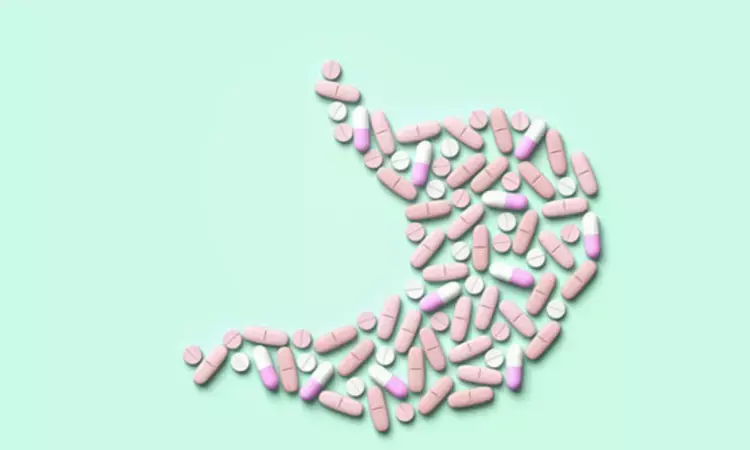- Home
- Medical news & Guidelines
- Anesthesiology
- Cardiology and CTVS
- Critical Care
- Dentistry
- Dermatology
- Diabetes and Endocrinology
- ENT
- Gastroenterology
- Medicine
- Nephrology
- Neurology
- Obstretics-Gynaecology
- Oncology
- Ophthalmology
- Orthopaedics
- Pediatrics-Neonatology
- Psychiatry
- Pulmonology
- Radiology
- Surgery
- Urology
- Laboratory Medicine
- Diet
- Nursing
- Paramedical
- Physiotherapy
- Health news
- Fact Check
- Bone Health Fact Check
- Brain Health Fact Check
- Cancer Related Fact Check
- Child Care Fact Check
- Dental and oral health fact check
- Diabetes and metabolic health fact check
- Diet and Nutrition Fact Check
- Eye and ENT Care Fact Check
- Fitness fact check
- Gut health fact check
- Heart health fact check
- Kidney health fact check
- Medical education fact check
- Men's health fact check
- Respiratory fact check
- Skin and hair care fact check
- Vaccine and Immunization fact check
- Women's health fact check
- AYUSH
- State News
- Andaman and Nicobar Islands
- Andhra Pradesh
- Arunachal Pradesh
- Assam
- Bihar
- Chandigarh
- Chattisgarh
- Dadra and Nagar Haveli
- Daman and Diu
- Delhi
- Goa
- Gujarat
- Haryana
- Himachal Pradesh
- Jammu & Kashmir
- Jharkhand
- Karnataka
- Kerala
- Ladakh
- Lakshadweep
- Madhya Pradesh
- Maharashtra
- Manipur
- Meghalaya
- Mizoram
- Nagaland
- Odisha
- Puducherry
- Punjab
- Rajasthan
- Sikkim
- Tamil Nadu
- Telangana
- Tripura
- Uttar Pradesh
- Uttrakhand
- West Bengal
- Medical Education
- Industry
Perioperative Proton Pump Inhibitor Use Linked to Lower Revision Surgery Risk in Joint Arthroplasty: Study

Researchers found that proton pump inhibitors (PPIs) taken during the perioperative period in total hip arthroplasty (THA) and total knee arthroplasty (TKA) patients showed reduced risk for all-cause revision surgery and periprosthetic joint infections (PJI). Conventionally used due to their gastroprotective properties with nonsteroidal anti-inflammatory drugs (NSAIDs), PPIs appear to have an added benefit beyond gastrointestinal protection alone. The purpose of this study is to investigate the correlation of PPI use with poor outcomes after elective THA and TKA. A study was recently published in The Journal of Arthroplasty by Andrew B. and colleagues.
The widespread use of PPIs aims at preventing GI complications, such as ulcers and bleeding, when there is a concomitant use of NSAIDs, especially for patients who have undergone joint replacement surgery. However, animal studies have raised concerns that PPIs may hinder bone healing and promote immunosuppression. This study examines whether these possible drug actions are translated into unfavorable outcomes for patients undergoing THA and TKA, with a concentration on all-cause revision rates, periprosthetic joint infections, and other complications.
An administrative claims database was used to identify patients who underwent elective THA or TKA from 2010 through 2019. Patients were excluded if they had any prior diagnosis of gastrointestinal bleeding or GERD. The experimental group contained those with a PPI prescription in the perioperative period and controls were defined as those without a PPI prescription in the database. The analysis consisted of a 1:1 propensity score match in order to create comparable groups, matching patients according to age, sex, and Charlson comorbidity index. Of these, 11,450 patients were available for this study, including 3,103 TKA+PPI, 2,622 THA+PPI, 3,103 TKA controls, and 2,622 THA controls. The average age of the patients was 64 years of age, ranging from 38 to 94, with a total of 57% of the cohort consisting of females. For the purposes of statistical analyses, the level of significance was set at P < 0.05.
Results
The analysis yielded a number of significant associations between the use of PPI in the perioperative period and the surgical outcomes of interest in the following fashions:
Total Knee Arthroplasty (TKA):
• In patients where PPIs were dispensed, the rate of all-cause revision surgery was much lower compared to others, 3.0% versus 4.1%, P < 0.01.
• PPI use was associated with a lower rate of periprosthetic joint infection, 1.0% versus 1.8%, P < 0.01.
Total Hip Arthroplasty (THA):
• PPI use was associated with lower rates of all-cause revision surgery (2.8% vs 4.0%, P = 0.02).
Despite this, no significant differences between the PPI and non-PPI group in either cohort were recorded with regards to:
• Aseptic loosening
• Periprosthetic fractures
• GI bleed
• Surgical site infection
The final results showed that the perioperative administration of PPIs in patients with TKA and THA was associated with a lower risk of all-cause revision surgery. Moreover, for TKA patients, this corresponded to a reduced risk of periprosthetic joint infections. That would mean that PPIs, while being highly used for their gastroprotective effects, could bring additional benefits when performing joint replacement surgeries. Yet, confirmation by further studies will be needed, as well as detailed explanation of mechanisms that occurred.
Reference:
Harris, A. B., Agarwal, A. R., Hegde, V., Oni, J. K., & Khanuja, H. S. (2024). Routine prescription of proton pump inhibitors in the perioperative period is associated with decreased rates of 2-year revision surgery after total hip and knee arthroplasty. The Journal of Arthroplasty. https://doi.org/10.1016/j.arth.2024.08.042
Dr Riya Dave has completed dentistry from Gujarat University in 2022. She is a dentist and accomplished medical and scientific writer known for her commitment to bridging the gap between clinical expertise and accessible healthcare information. She has been actively involved in writing blogs related to health and wellness.
Dr Kamal Kant Kohli-MBBS, DTCD- a chest specialist with more than 30 years of practice and a flair for writing clinical articles, Dr Kamal Kant Kohli joined Medical Dialogues as a Chief Editor of Medical News. Besides writing articles, as an editor, he proofreads and verifies all the medical content published on Medical Dialogues including those coming from journals, studies,medical conferences,guidelines etc. Email: drkohli@medicaldialogues.in. Contact no. 011-43720751


